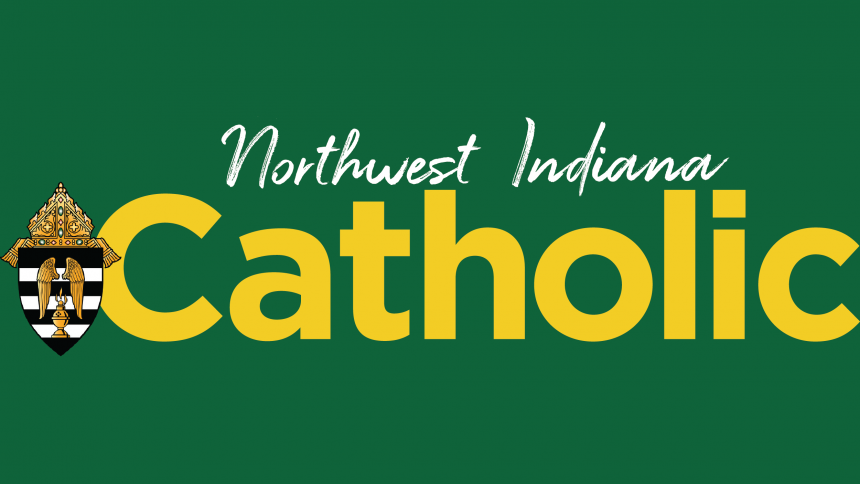
Four key components comprise the Indiana Bishops pastoral letter on poverty: family life, employment, education and health care. In my last column, I reflected on the first two; today, the latter. The Catholic Church has always highly prized education; through grade schools, high schools, colleges and universities, the Church has formed millions of people to take their rightful place in the Kingdom of God and the world. We all know the importance of education in leading persons out of poverty. Job skills, critical thinking, specialized knowledge and character development help people to succeed in life, find gainful and sustaining employment and make a greater contribution to society. Children who drop out of or fail in school will most likely stay in a cycle of poverty that leads to despair and suffering.
How can we all help our schools to succeed? How can we forge partnerships of schools, parents, businesses and communities that will help young people to graduate from high school and go on to some form of higher learning? As Catholics, we need to work hard to ensure that our schools remain accessible to those of moderate or lower income, so that Catholic education does not become elitist. As citizens, we need to think creatively and generously about how we can all help children in public schools, especially those in economically-challenged environments, to succeed. Mentoring programs, literacy education, groups that offer role models of love and care are all ways to personally invest in the future of at-risk children in our community.
The bishops call for a strengthening of marriage and family life by supporting the role of parents as the primary educators of their children, encouraging the state of Indiana to dedicate the resources needed to provide for early childhood education, to reduce racial, ethnic and economic segregation and to improve best practices for teachers, principals and schools. Quality education for all is a daunting and complex challenge; we must continue to think, talk, pray and act for the sake of all children in our state.
The Catholic Church proclaims that health care is a fundamental human right and for decades, the bishops have called for comprehensive reforms to ensure the health care of all, especially the weakest and most vulnerable. Many of the religious orders founded hospitals in places where there were none to provide needed health services in a context of faith and compassion. Today, Catholic health care institutions serve more than 25 percent of all patients in the United States. I think we would all agree that every person should have access to health care, regardless of age or economic status. One should not have to choose between food or medicine, seeing the doctor or paying the utility bill.
The bishops invite all Hoosiers to promote and defend human life and dignity from the moment of conception to natural death; attend to the whole person (body, mind and spirit), while pursuing a pluralism that respects freedom of religion and conscience; care for poor and vulnerable persons and the practice of a careful stewardship of resources by restraining costs and applying them equitably to everyone. Our diocese is richly blessed with an abundance of health care institutions, many of them Catholic, which are deeply committed to the health and well-being of our people. We are all deeply grateful to those who work in the health care field, giving their lives in the care of the sick and the suffering. My mother was a nurse who loved what she did; for her, nursing was not a job, but a true vocation.
When we look at the fundamental issues addressed in the pastoral letter on poverty, we know there are no easy answers or quick fixes. If there were, we would have implemented those fixes years ago. We also acknowledge there are various solutions to the perplexing challenges of poverty throughout our state. While the bishops advocate for some particular courses of action, they also acknowledge that such recommendations are partial. As bishops, we hope the document will serve as a catalyst for discussion, prayer, reflection and action on behalf of the poor in our state.
I have met so many loving and caring people here in the diocese, Catholic and not, who serve the needs of the poor, seniors, children, prisoners and the homeless in sacrificial and generous ways. As we continue such noble and needed efforts, we also ask ourselves how can we get to systemic solutions that effect the ability of the poor to be self-sufficient and fulfilled, taking their rightful place in our society, contributing their skills, talents and gifts to the common good.
+ Donald J. Hying
To read the bishops’ pastoral letter, “Poverty at the Crossroads,” go to dcgary.org.
